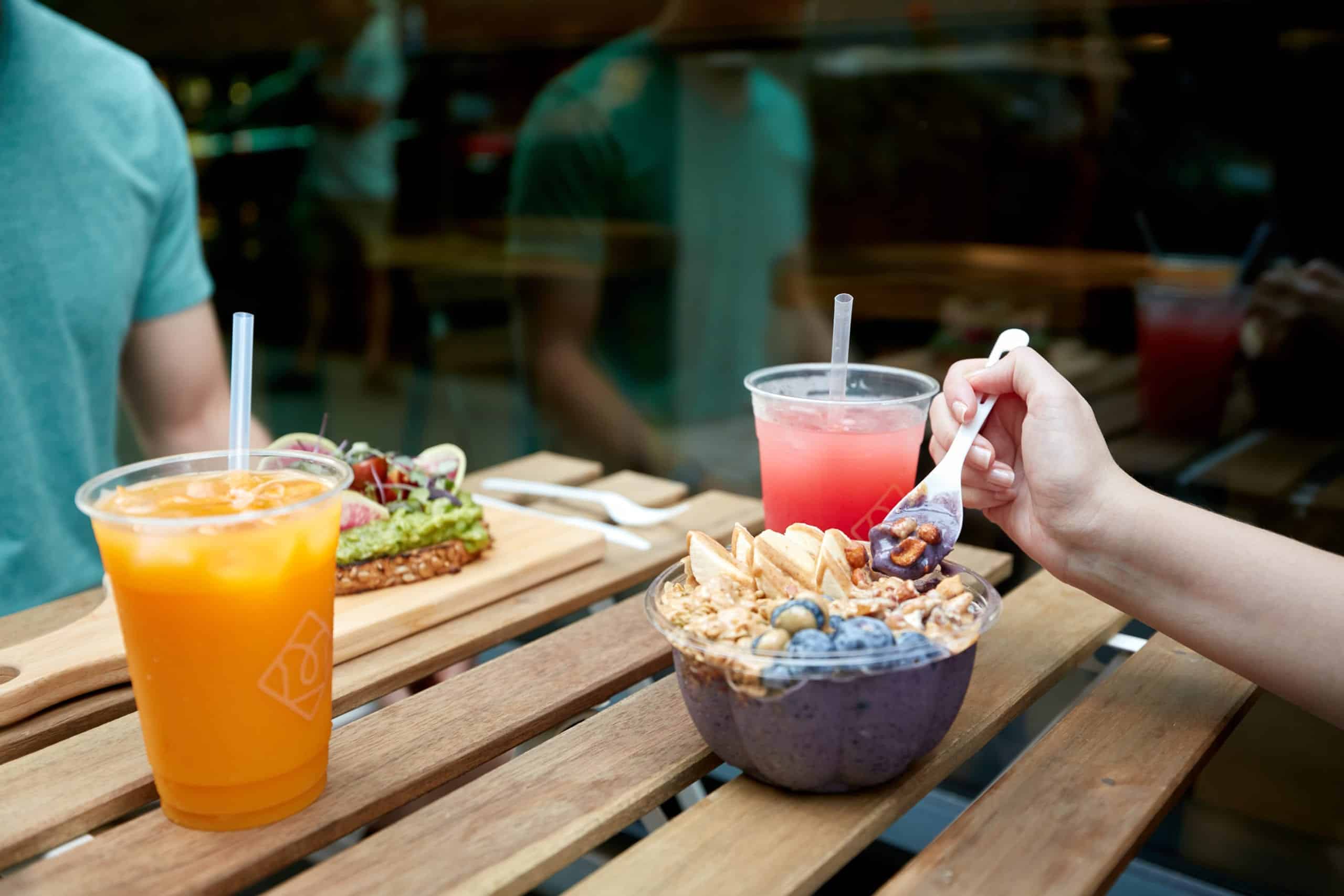5 Ways Millennials Are Changing The Way We Eat
What It Means For Casual Dining Food Franchises

Millennials – they’re a generation unlike any prior. Marked largely by technology, these individuals are at the forefront of change in the business world. They think differently, work differently, and communicate differently. And in doing so, they’re quickly redefining standards across the board, from how we view social issues to what we value most.
This is having a profound impact on the food landscape, as amid these changing tides, an entirely new generation of consumers is emerging – one that’s more health-conscious, environmentally conscious, and socially conscious than any before it.
As a result, we’re seeing the rise of “food values” – things like sustainability, ethical sourcing, and local production that are increasingly important to young people when it comes to the food they consume. And this shift is starting to have a major impact on the food industry as a whole.
So what exactly are millennials doing to shape the food landscape? Let’s take a look.
1. Prioritizing Health Consciousness
Millennials are putting a greater emphasis on health and wellness than any other generation before them. They’re among the most physically active, and they’re more likely to seek out healthy options when it comes to food.
This focus on health has driven a boom in the organic and natural food industries, as millennials are increasingly interested in food that is free of pesticides, GMOs, and other artificial ingredients.
2. Demanding Transparency
Amid the myriad of corporate scandals that have greatly defined our markets, millennials have developed a healthy skepticism of big business. They want to know where our food comes from, how it’s made, and who is profiting from it.
This demand for transparency has led to a greater interest in ethical sourcing and sustainable production practices. Millennials are more likely to support brands that they perceive as being transparent and responsible.
3. Valuing Local and Sustainable Options
Millennials are also increasingly interested in supporting local and sustainable food options. They see and understand the impacts of climate change, and are a large part of the mobilizing effort for environmental sustainability.
Driven by a desire to reduce the environmental impact of our food system and to support local economies, millennials specifically make up a massive section of the market for local and organic food.
Their preference for sustainable and environmentally friendly options has led to a boom in the farm-to-table movement, as well as an increased interest in plant-based diets.
For this generation, norms have changed to where you’re more likely to see shoppers out at farmers’ markets, buying from community-supported agriculture programs, and purchasing products that are certified organic or fair trade than at a big box store.

4. Emphasizing The Value Of Ethics
Ethically sourced ingredients are another major area of focus for millennials, who are increasingly concerned with where our food comes from and how it’s produced.
For far too long, the food industry has been rife with unethical practices, from inhumane treatment of animals to unsafe working conditions for laborers. But millennials are quickly pushing for change.
They’re more likely to support brands that they perceive as being ethical and responsible, and they’re more likely to seek out products that are certified humane, fair trade, or otherwise ethically sourced. They want to know that the brands they’re supporting are treating their employees fairly, working to reduce their environmental impact, and giving back to the community.
Millennials are also playing a key role in the development of the plant-based meat market, as they’re more likely to be open to trying meat alternatives than older generations.
5. Expecting Speed
In this age of digital connection, people have become increasingly expectant of getting and doing things in an instantaneous way. This is especially true for millennials, who having only ever been raised in a world run by smartphones and advanced tech, aren’t fond of inconvenience.
Translated into the world of food and dining, this means that people want to be able to get their food faster, and with less effort.
In fact, a prominent 42 percent of millennials interviewed for a recent study indicated that speed of service was the most important factor to their eating habits.*
This has driven the popularity of things like food delivery apps, as well as quick-serve restaurant options.
*https://www.globalyoungvoices.com/fast-news-blog/2017/1/13/millennials-care-more-about-healthy-food-than-previous-generations-study-shows
Adapting To The Future Of Food
Millennials are also using their purchasing power to drive social change. They’re increasingly interested in supporting brands that share their values, and they’re unafraid to use their spending power to make a statement. What this means for casual dining restaurants is a need to recognize and adapt to these oncoming trends and meet the needs of younger customers as they continue to become more mainstream. By doing so, they’ll not only stay relevant in an ever-changing landscape, but also position themselves to be at the forefront of the industry for years to come.
At Toastique, we’re all about quick, healthy, and delicious food. We equip our franchisees with a wide range of healthy menu items that can be made quickly and easily, so they can serve delicious food to their customers without sacrificing quality or speed. If you’re interested in learning more about our franchise opportunities, we invite you to contact us today.

